AWM41 974 - [Nurses Narratives] Sister M Gibbon
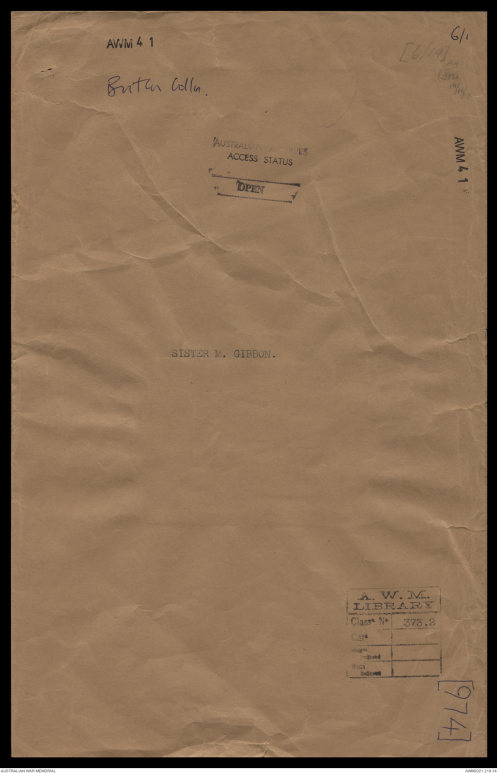
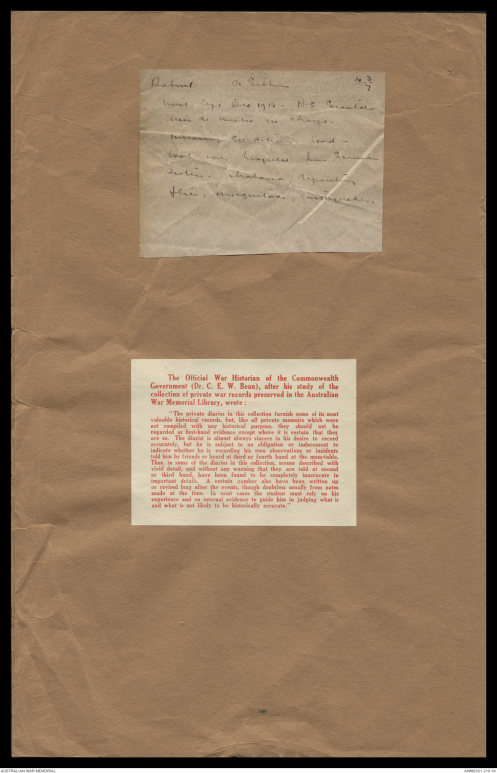
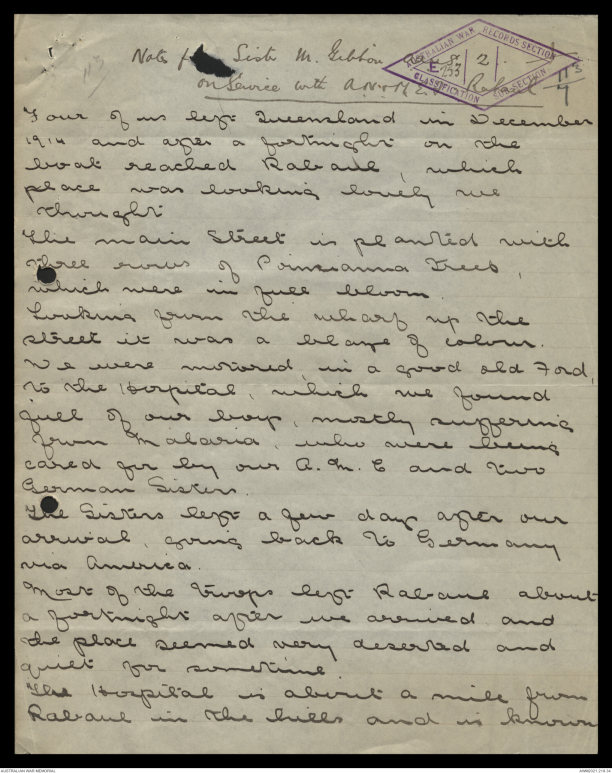
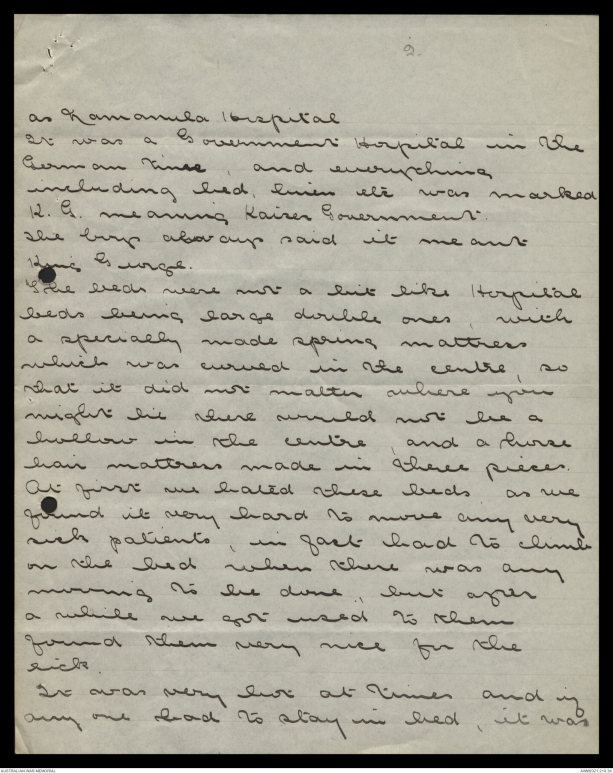
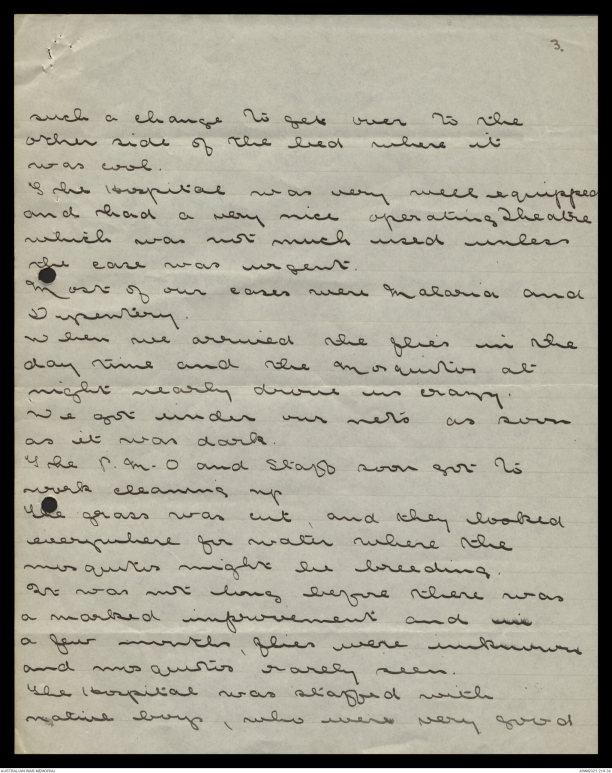
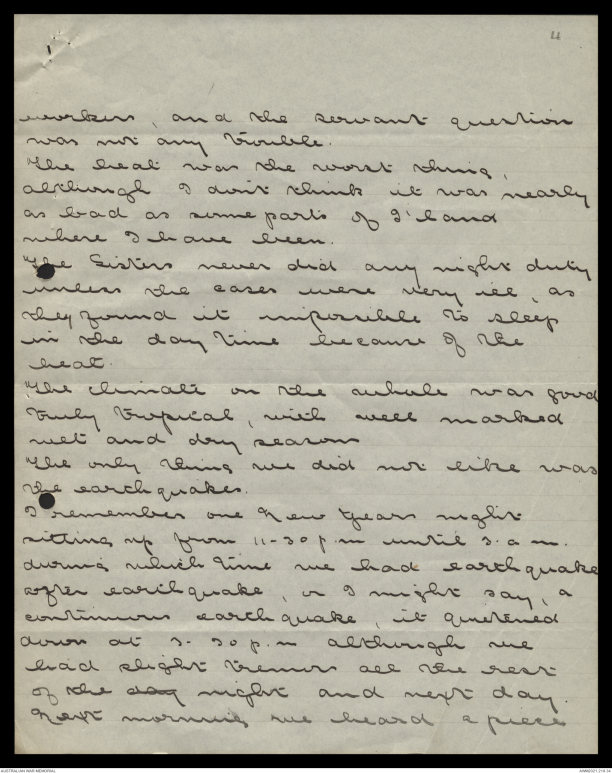
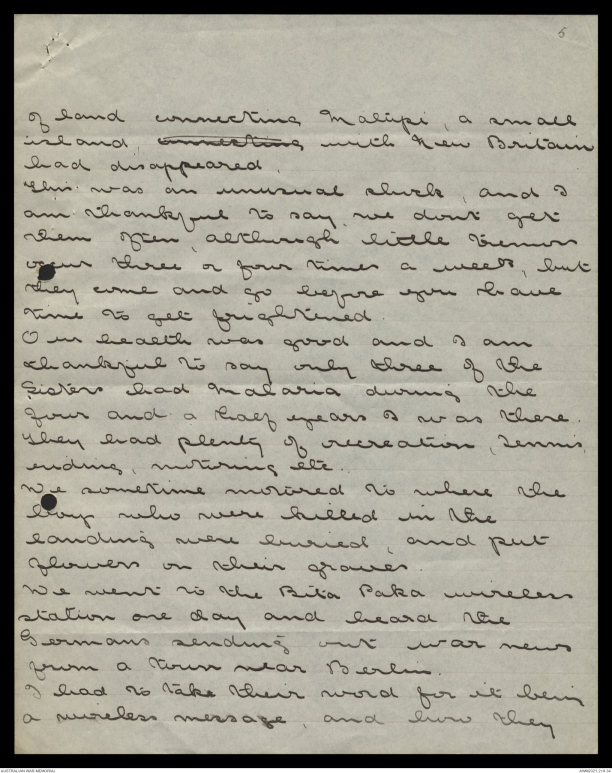
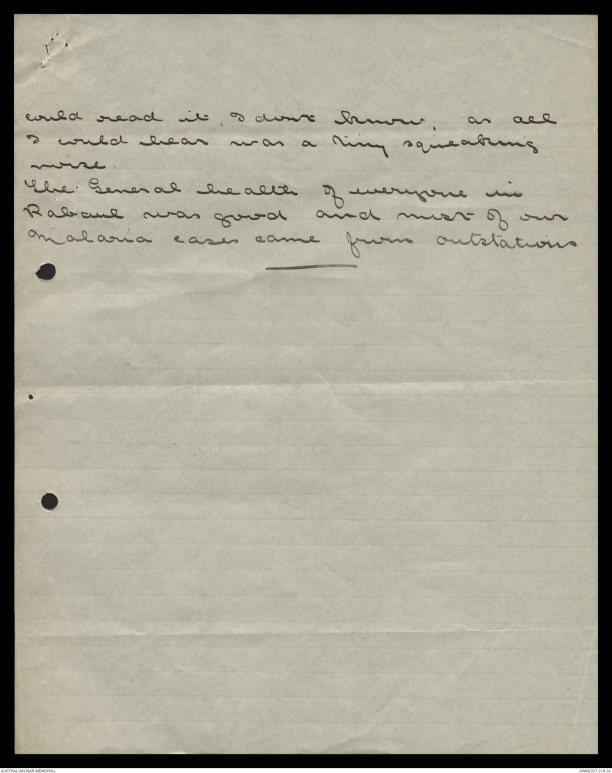
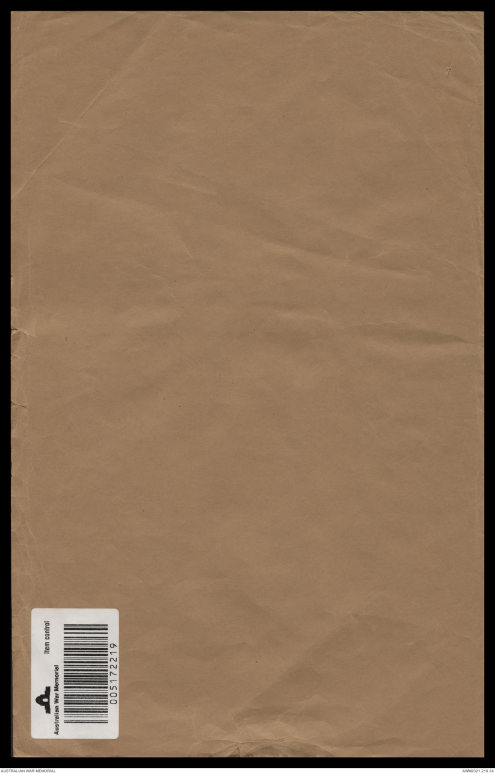
AWM 41
6/1
[6/14]
1300
[[19/11/18?]]
Butler Colln.
AUSTRALIAN ARCHIVES
ACCESS STATUS
OPEN
AWM 4 1
SISTER M. GIBBON.
A.W.M
LIBRARY
Class No. 373.2
[974]
Rabaul Sr Gibbon 43/7
Nurses left Dec 1918 - N-C Australians
Also as Matron in charge.
nursing conditions good -
took over hospital from German
Sisters. Malaria, dysentry
flies, mosquitoes, earthquakes.
The Official War Historian of the Commonwealth
Government (Dr. C. E. W. Bean), after his study of the
collection of private war records preserved in the Australian
War Memorial Library, wrote:-
"The private diaries in this collection furnish some of its most
valuable historical records, but, like all private memoirs which were
not compiled with any historical purpose, they should not be
regarded as first-hand evidence except where it is certain that they
are so. The diarist is almost always sincere in his desire to record
accurately, but he is subject to no obligation or inducement to
indicate whether he is recording his own observations or incidents
told him by friends or heard at third or fourth hand at the mess-table.
Thus, in some of the diaries in this collection, scenes described with
vivid detail, and without any warning that they are told at second
or third hand, have been found to be completely inaccurate in
important details. A certain number also have been written up
or revised long after the events, though doubtless usually from notes
made at the time. In most cases the student must rely on his
experience and on internal evidence to guide him in judging what is
and what is not likely to be historically accurate".
AUSTRALIAN WAR RECORDS SECTION
E253/2
Rabaul
CLASSIFICATION SUB-SECTION
113/7
[*113*] Notes f[[rom?]] Sister M. Gibbon AAMS
on Service with A.N. & M.E.F.
Four of us left Queensland in December
1914 and after a fortnight on the
boat reached Rabaul, which
place was looking lovely we
thought.
The Main Street is planted with
three rows of Poincianna Trees
which were in full bloom.
Looking from the wharf up the
street it was a blaze of colour.
We were motored in a good old Ford,
to the hospital, which we found
full of our boys, mostly suffering
from malaria, who were being
cared for by our A.M.C. and two
German Sisters.
The Sisters left a few days after our
arrival, going back to Germany
via America.
Most of the troops left Rabaul about
a fortnight after we arrived and
the place seemed very deserted and
quiet for sometime.
The Hospital is about a mile from
Rabaul in the hills and is known
2.
as Namanula Hospital.
It was a Government Hospital in the
German time, and everything
including bed linen etc was marked
with K.G. meaning Kaiser Government.
The boys always said it meant
King George.
The beds were not a bit like Hospital
beds being large double ones, with
a specially made spring mattress
which was curved in the centre, so
that it did not matter where you
might lie there would not be a
hollow in the centre, and a horse
hair mattress made in three pieces.
At first we hated these beds as we
found it very hard to move any very
sick patients, in fact had to climb
on the bed when there was any
moving to be done, but after
a while we got used to them
found them very nice for the
sick.
It was very hot at times and if
any one had to stay in bed, it was
3.
such a change to get over to the
other side of the bed where it
was cool.
The Hospital was very well equipped
and had a very nice operating theatre
which was not much used unless
the case was urgent.
Most of our cases were Malaria and
Dysentery.
When we arrived the flies in the
day time and the mosquitos at
night nearly drove us crazy.
We got under out nets as soon
as it was dark.
The P.M.O. and Staff soon got to
work cleaning up
The grass was cut, and they looked
everywhere for water where the
mosquitos might be breeding.
It was not long before there was
a marked improvement and in
a few months, flies were unknown
and mosquitos rarely seen.
The Hospital was staffed with
native boys, who were very good
4.
workers, and the servant question
was not any trouble.
The heat was the worst thing,
although I didn't think it was nearly
as bad as some parts of I'land
where I have been.
The Sisters never did any night duty
unless the cases were very ill, as
they found it impossible to sleep
in the day time because of the
heat.
The climate on the whole was good
truly tropical, with well marked
wet and dry seasons
The only thing we did not like was
the earthquakes.
I remember one New Years night
sitting up from 11-30 p.m until 3. am.
during which time we had earthquake
after earthquake, or I might say, a
continuous earthquake, it quietened
down at 3.30 p.m although we
had slight tremors all the rest
of the day night and next day.
Next morning we heard a piece
5
of land connecting Matupi, a small
island connecting with New Britain
had disappeared.
This was an unusual shock, and I
am thankful to say we dont get
them often, although little tremors
occur three or four times a week, but
they come and go before you have
time to get frightened.
Our health was good and I am
thankful to say that only three of the
Sisters had Malaria during the
four and a half years I was there.
They had plenty of recreation, tennis
riding, motoring etc.
We sometimes motored to where the
boys who were killed in the
landing were buried, and put
flowers on their graves.
We went to the Bita Paka wireless
station one day and heard the
Germans sending out war news
from a town near Berlin.
I had to take their word for it being
a wireless message, and how they
could read it I dont know, as all
I could hear was a tiny squeaking
noise.
The General health of everyone in
Rabaul was good and most of our
malaria cases came from outstations.
Item Control
Australian War Memorial
005172219
 Jasmine Hatharasinghe
Jasmine HatharasingheThis transcription item is now locked to you for editing. To release the lock either Save your changes or Cancel.
This lock will be automatically released after 60 minutes of inactivity.